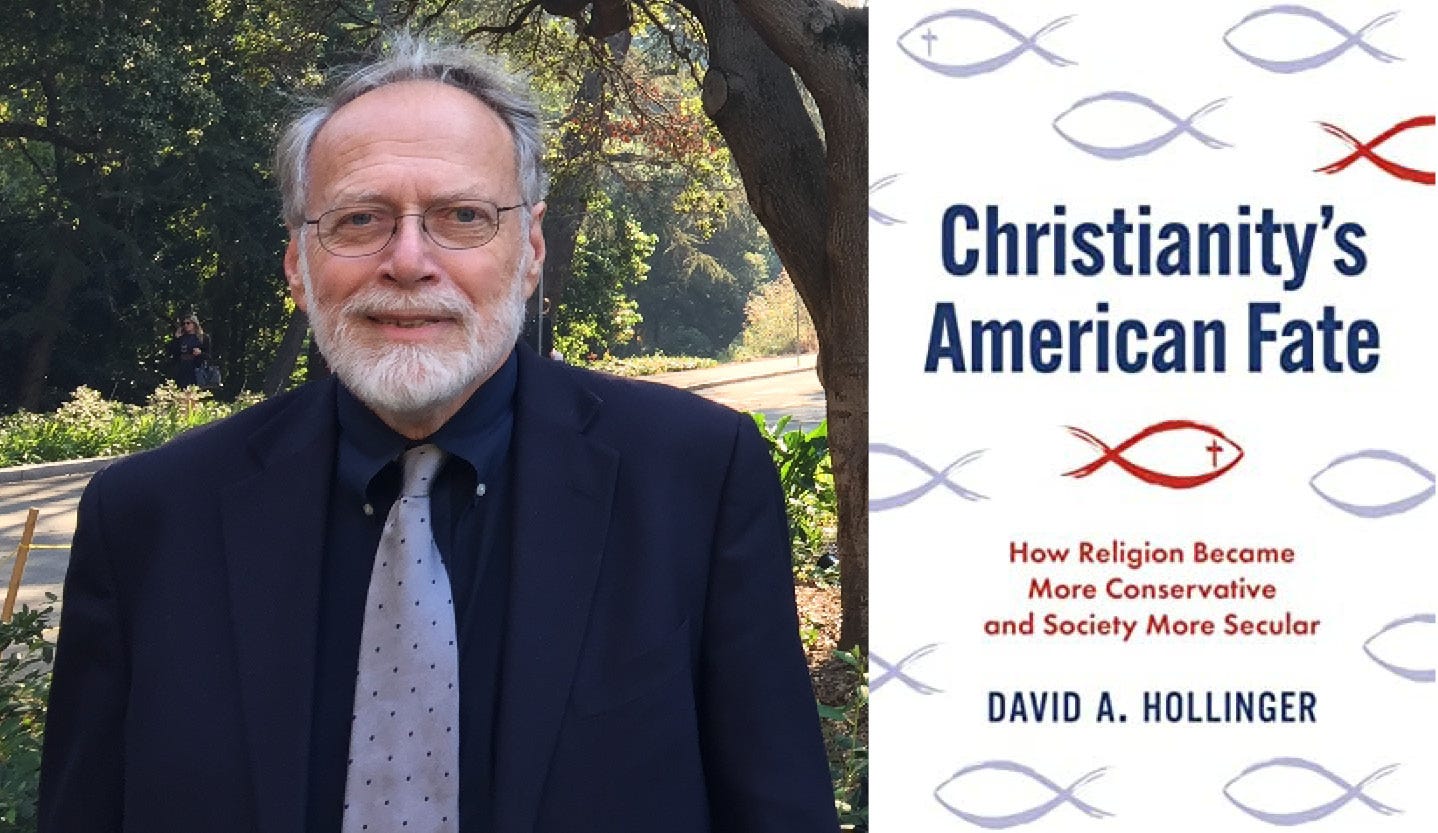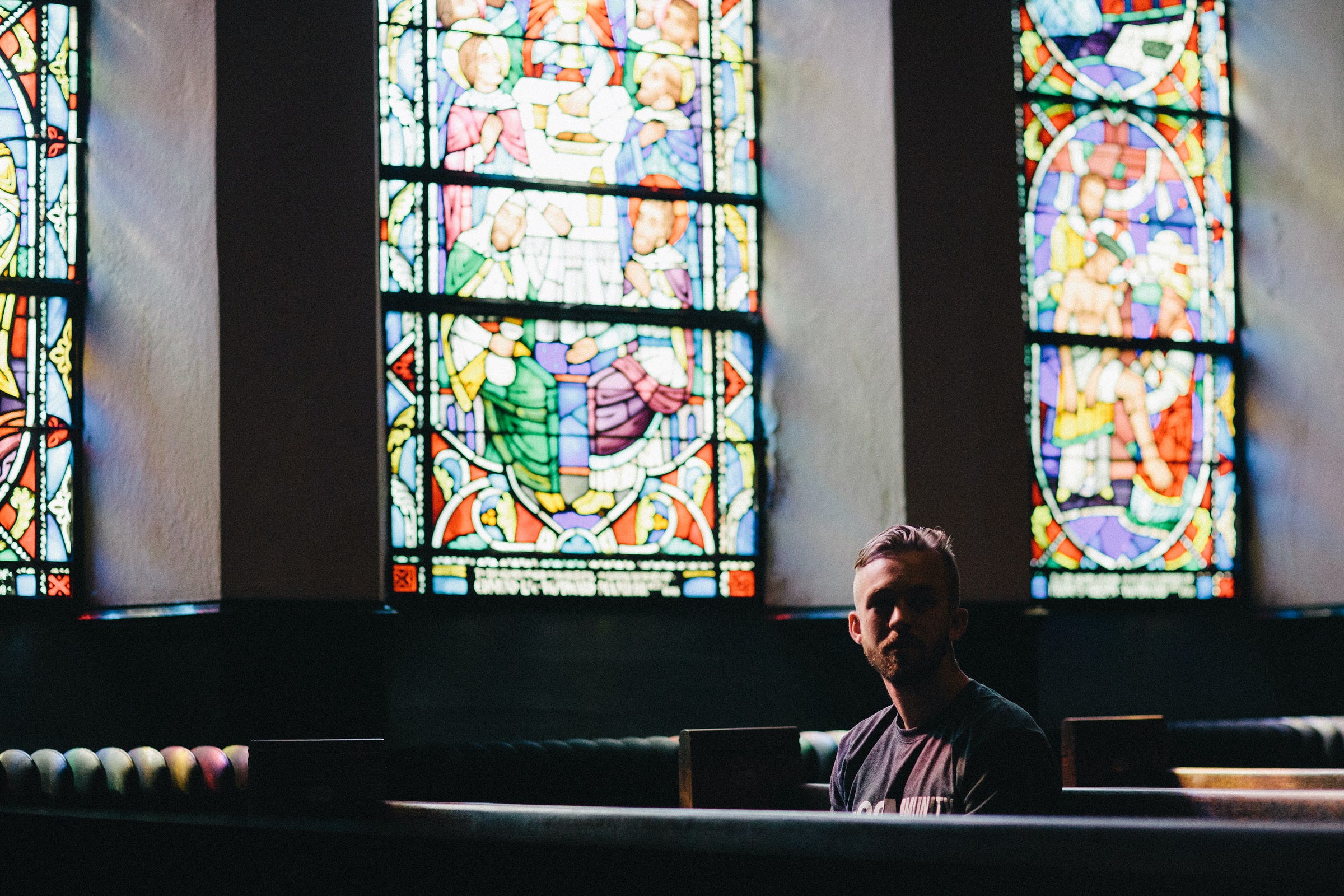Review & Giveaway: Christianity’s American Fate
Book explores how religion became more conservative and society more secular.
Since the latter half of the 20th century, the conventional wisdom about American Protestant Christianity goes something like this: Conservative churches have grown because they staked out clear theological positions that meaningfully defined who they were. In contrast, mainline or progressive churches have shrunk because they offered muddled, non-demanding stances that failed to attract or retain adherents. Versions of this dogma have been written in books, preached in local churches, and taught from the stages of large Christian conferences.
“Not only is this common understanding false, in fact, the opposite is true,” historian David Hollinger recently wrote in Sightings, a publication about the role of religion in public life from the University of Chicago Divinity School. “Conservative evangelical churches flourished in the second half of the 20th century by providing a safe harbor for White Americans who wanted to be counted as Christian while avoiding a challenge that mainline leaders insisted must be faced: how to live a Christian life in a racially diverse society and a scientifically informed culture.”
He defends this provocative thesis with historical evidence in his new book Christianity’s American Fate: How Religion Became More Conservative and Society More Secular. Written for a general audience, the volume accomplishes the rare feat of a scholar translating deep expertise into accessible arguments that challenge easy consensus. Its readers will need to wrestle with at least three important claims.
First, Hollinger documented how significant aspects of American evangelicalism’s development has been a reaction to the mainline Protestant tradition (who are labeled “ecumenical Protestants” in the book, avoiding the confusion created by the word “mainline” and reflecting their openness to engagement across religious divides). While evangelical self-understanding often portrays itself as defending long-held positions abandoned by more progressive Christians, the historical record reveals how evangelical positions were often developed in response to the ground staked out by others.
“Ecumenical ideas largely defined the terms on which evangelicalism took shape and presented itself to American society,” Hollinger argued. “Evangelicalism, like its parent, fundamentalism, achieved definition and gained standing as a point-by-point response to the modernizing initiatives of ecumenicals.”
This dialectic raises the second element of the book’s argument that warrants attention. The “modernizing initiatives of ecumenicals” were largely the work of denominational elites seeking a more “cosmopolitan Protestantism.” Other historians have also explained how mainline traditions sought to reconcile Christian faith with major scientific findings, critical approaches to understanding the Bible, and increased exposure to religious pluralism. What Hollinger emphasized is how this was a top-down process, with those in positions of authority often failing to bring along those they were supposedly leading.
Finally, a third theme is the specific sources animating these elite-driven efforts for a more socially and intellectually inclusive church. More frequent, intimate, and prolonged encounters with non-Christian communities both overseas and in the United States brought to light problematic hegemonic assumptions and practices.
“Many returning missionaries became informal ambassadors from foreign peoples and vocal advocates of tolerance and inclusion,” Hollinger explained of a process referred to as “the missionary boomerang” where those sent to enlighten those in far-off lands instead experience return from their posts having experienced a conversion of their own. “The missionaries most likely to become cosmopolitan critics of American narrowness were the most educated: those who had attended liberal arts colleges and leading seminaries.”
These tensions from the past have obvious echoes in the present. The fault lines in our contemporary politics often center around associating elitism with the embrace of science, valuing of higher education, and a globalist mindset in contrast to a populism defined by its own understanding of Christian faith, “common sense” thinking, and nationalistic fervor.
This dynamic hints at one of the main threads running throughout Hollinger’s book. The demands by mainline elites within their various traditions on social and political issues, resulting from a more inclusive theology, reshaped American Protestantism specifically and the American religious landscape more generally.
Some found their quest for a more worldly church too difficult to accept and departed for a less onerous evangelicalism. Others were pushed by their ecumenical parents and pastors to explore what the world had to offer and ultimately left religion behind. The remnant finds itself stuck between a sometimes strident, narrow version of Christianity they reject and an increasingly secular society unable (or unwilling) to see the nuances of an American Protestantism where not everyone who claims the Christian banner sees their faith in conflict with modernity’s celebrated progress.
With the trite reminder that history is complicated, one does not have to be fully convinced by Hollinger’s narrative to learn something important from the story he tells. Indeed, it would be almost impossible to read this book and still accept the conventional wisdom of how the Protestantism of the past shaped the state of Christianity in the present. Left to be answered for ecumenical Protestants is whether there remains time for a better understanding of what came before to alter the direction of what is yet to come.
Given what’s at stake in this conversation, we’re giving away a copy autographed by Hollinger to a paid subscriber of A Public Witness. We’ll select that winner this week. So if you’re not already a paid subscriber, upgrade today for your chance to receive a signed copy of Christianity’s American Fate.
And in addition to picking up the book, you can also hear more from Hollinger on a recent episode of our Dangerous Dogma podcast, where he talked in more detail about the ground covered in this intriguing volume.
As a public witness,
Beau Underwood




